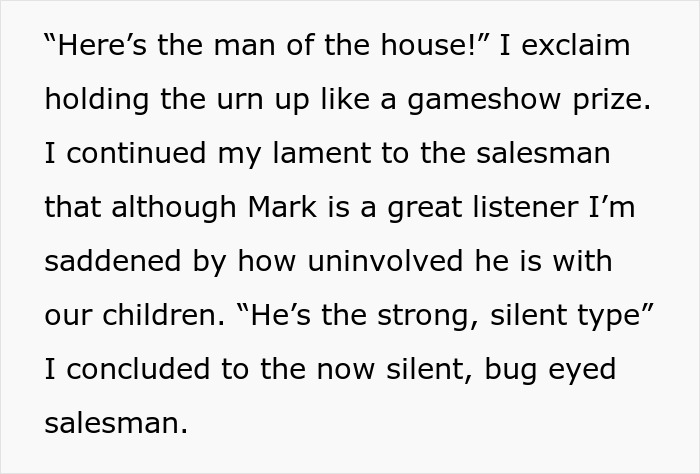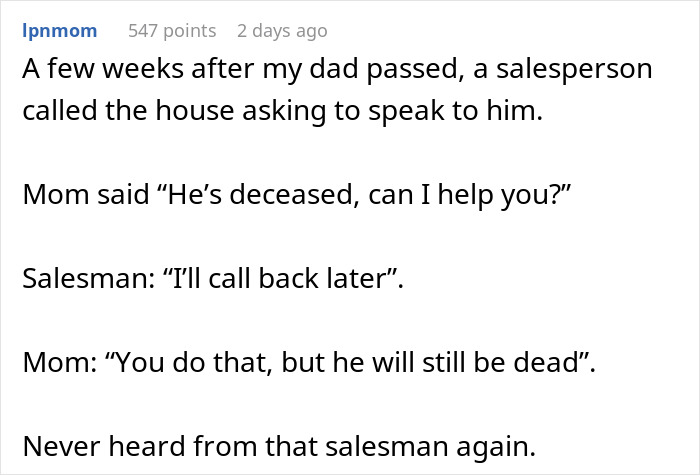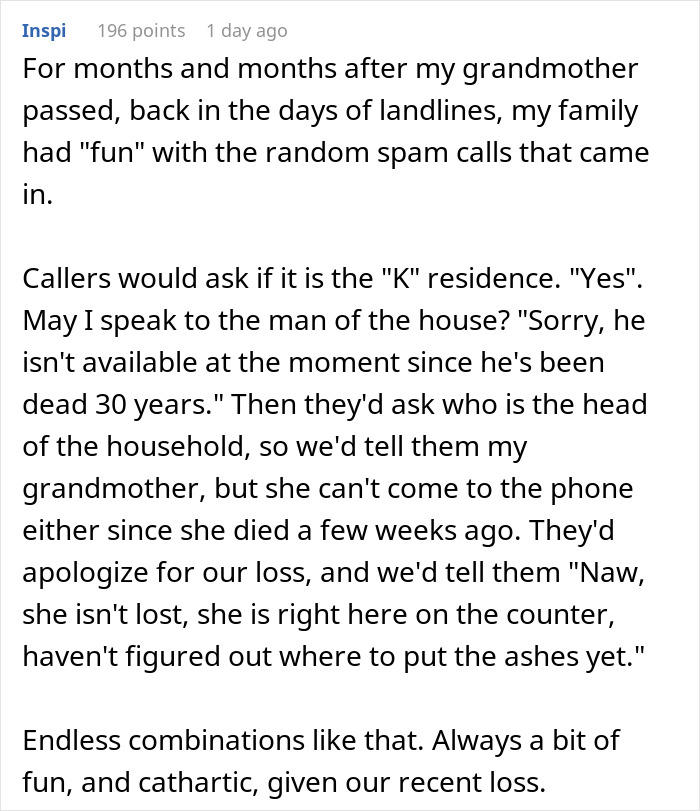Losing a loved one is one of life’s most difficult experiences, and how we handle it looks different for everyone. For this woman, grief took on a form she hadn’t quite expected.
One fateful day, a pushy salesman appeared on her doorstep, demanding to speak to “the man of the house.” Not realizing he was talking to a widow, he refused to take no for an answer—so she decided to give him exactly what he asked for, in a way he’d never forget.
Read on for the full story.
More info: Reddit
A pushy salesman showed up on a woman’s doorstep, insisting on speaking to the “man of the house”

Image credits: Sofia Alejandra/Pexels (not the actual photo)
Unaware she was a widow, he refused to leave, so she decided to give him exactly what he asked for




Image credits: Beyzanur K./Pexels (not the actual photo)




Image credits: Pavel Danilyuk/Pexels (not the actual photo)



Image credits: Practical-Society-47
Expert says humor can help with grief, but shouldn’t be the only strategy

Image credits: Elle Hughes/Pexels (not the actual photo)
Clinical psychologist, EMDR therapist, and founder of The Travel Psychologist, Dr. Charlotte Russell, offered her expertise to Bored Panda, explaining that the woman’s response was completely reasonable given the circumstances.
“It was her assertiveness that really stood out to me,” Dr. Russell said. “She was being pressured by a salesman who was intrusive, sexist, and quite rude. She stood up to him by bringing out her husband’s ashes, which shone a light on the inappropriateness of his behavior.”
She encouraged people to respond confidently when confronted with disrespect and rudeness, especially when it triggers difficult emotions.
“So, assertiveness and humor appeared to be part of this woman’s coping,” she added. “That’s completely okay.”
Dr. Russell noted that we all experience grief differently. This is especially true in cases of bereavement, as each relationship we lose is unique, so it’s essential to find a way to process the loss that feels right for us individually.
“Of course, as psychologists, we know there are approaches that can facilitate this process and others that might hinder it,” she said. “However, there is certainly no ‘one-size-fits-all’ or single ‘right’ way to process trauma.”
“What is important, however, is that we have a range of strategies and not just one or two,” Dr. Russell concluded. “If we rely solely on humor to cope, this is unlikely to be helpful. But if we use humor in some situations and have one or two close friends we can be genuinely honest with about our feelings, this is much healthier.”
Commenters offered kind words and admired how the woman dealt with the situation























